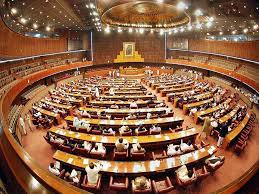Over 600,000 women from poor households mobilised under EU-funded programme
ISLAMABAD: The European Union-funded Sindh Union Council and Community Economic Strengthening Support (Success) programme has mobilised 608,000 women members of poor households into 30,274 community institutions.
Through the programme, the real income of targeted poor households has increased by 37pc with 25pc of the households graduating from the lowest poverty score band to a relatively higher poverty score.
This was highlighted during a ceremony hosted by Rural Support Programmes Network (RSPN) in the federal capital on Wednesday. Head of Cooperation of EU to Pakistan, Ovidiu Mic, RSPN Chairman Shoaib Sultan Khan, Deputy secretary of Ministry of Economic Affairs Khalid Khan, chief executive officers (CEOs) of the implementing partners and community activists attended the event.
The programme was launched in October 2015. For seven years, the programme has been committed to the goals of household poverty reduction and women empowerment. With funding from the EU and support from Government of Sindh, the programme has been implemented in eight districts of Sindh including Tando Allahyar, Tando Mohammad Khan, Sujawal, Matiari, Jamshoro, Dadu, Larkana and Kambar Shahdadkot.
The programme has been based on a social mobilisation approach. This approach is aimed at assisting poor members of the community and manage their locally available resources, improve their access to social and financial services, and strengthen their participation in local decision-making.
The programme has been implemented by RSPN and its member RSPs including National Rural Support Programme (NRSP), Sindh Rural Support Organisation (SRSO) and Thardeep Rural Development Programme (TRDP).
RSPN CEO Shandana Humayun Khan, while thanking the EU for its support said: “Our biggest achievement is that with the commitment of EU and the government, we were able to do this programme which was led by women (100pc).
“This network of women is the largest grassroots development network in the country. Provincial and federal government officials from other provinces are taken to Sindh for exposure and learning from efforts of these women.”
Iffat Batool said: “We are sure that through self-help initiatives, we will not let any child, especially girl child, be out of school.”
Ovidiu Mic said: “When we look back, we see that we have achieved more in poverty reduction. The area where we are more proud is the work that is done with women in rural areas. 80pc of the initiative is driven by women in Sindh as it empowers them financially and vocationally.”
The programme has worked diligently to improve the living conditions of rural communities of Sindh, making it the one province with the largest, grassroots poverty reduction programme, led and run by women in Pakistan.
It is worth mentioning that RSPN serves as a strategic platform for its nine member RSPs that bring together over 40 years of knowledge and experience in community development.
RSPN is the largest civil society network of Pakistan with an outreach to 8.5 million rural households, representing a population of over 55 million in 150 out of 156 districts/regions of Pakistan.
Source: Dawn



